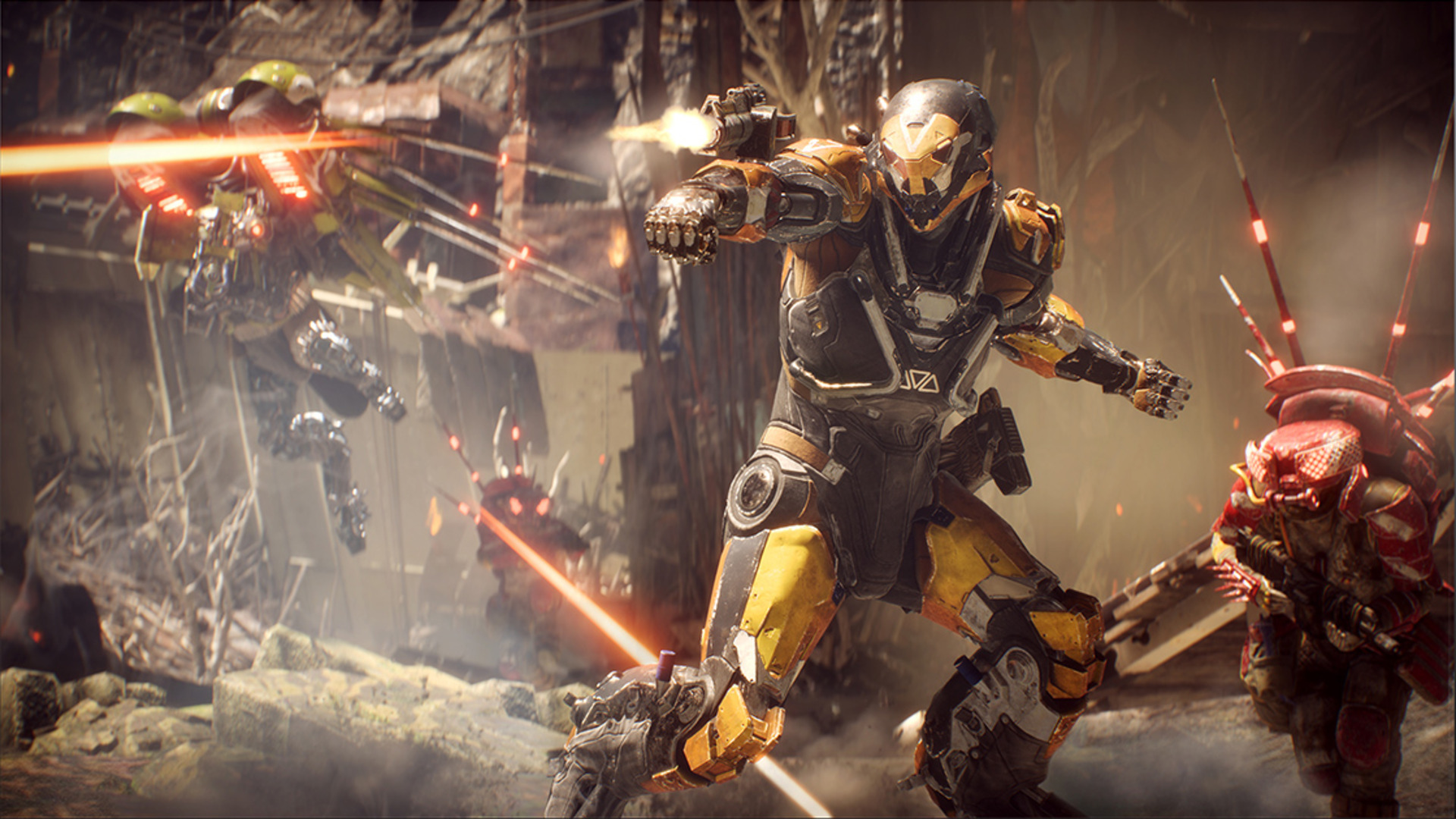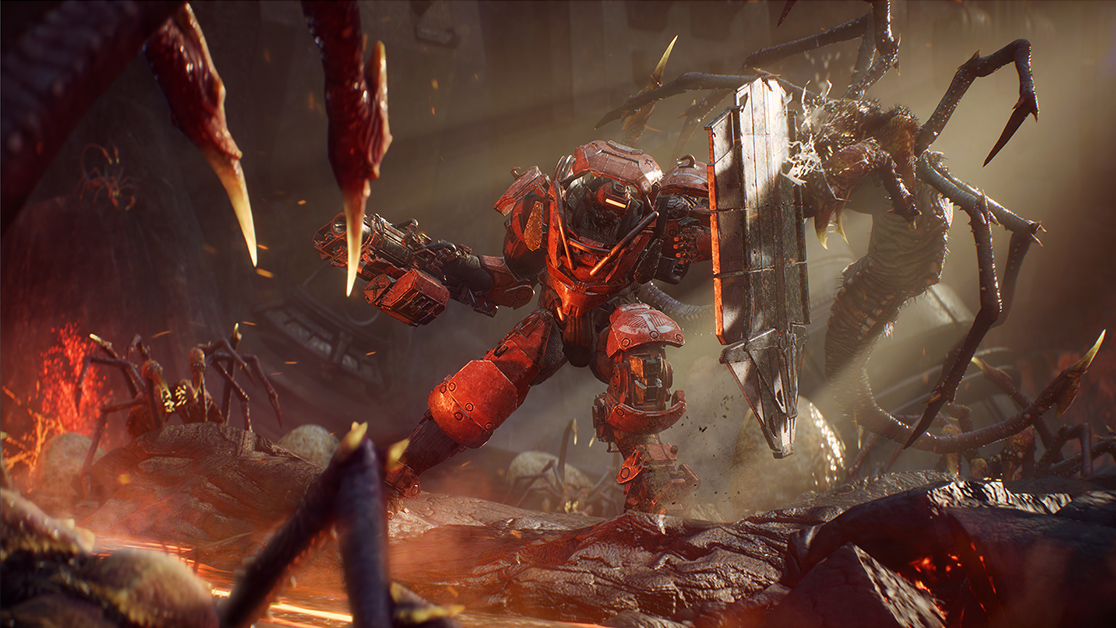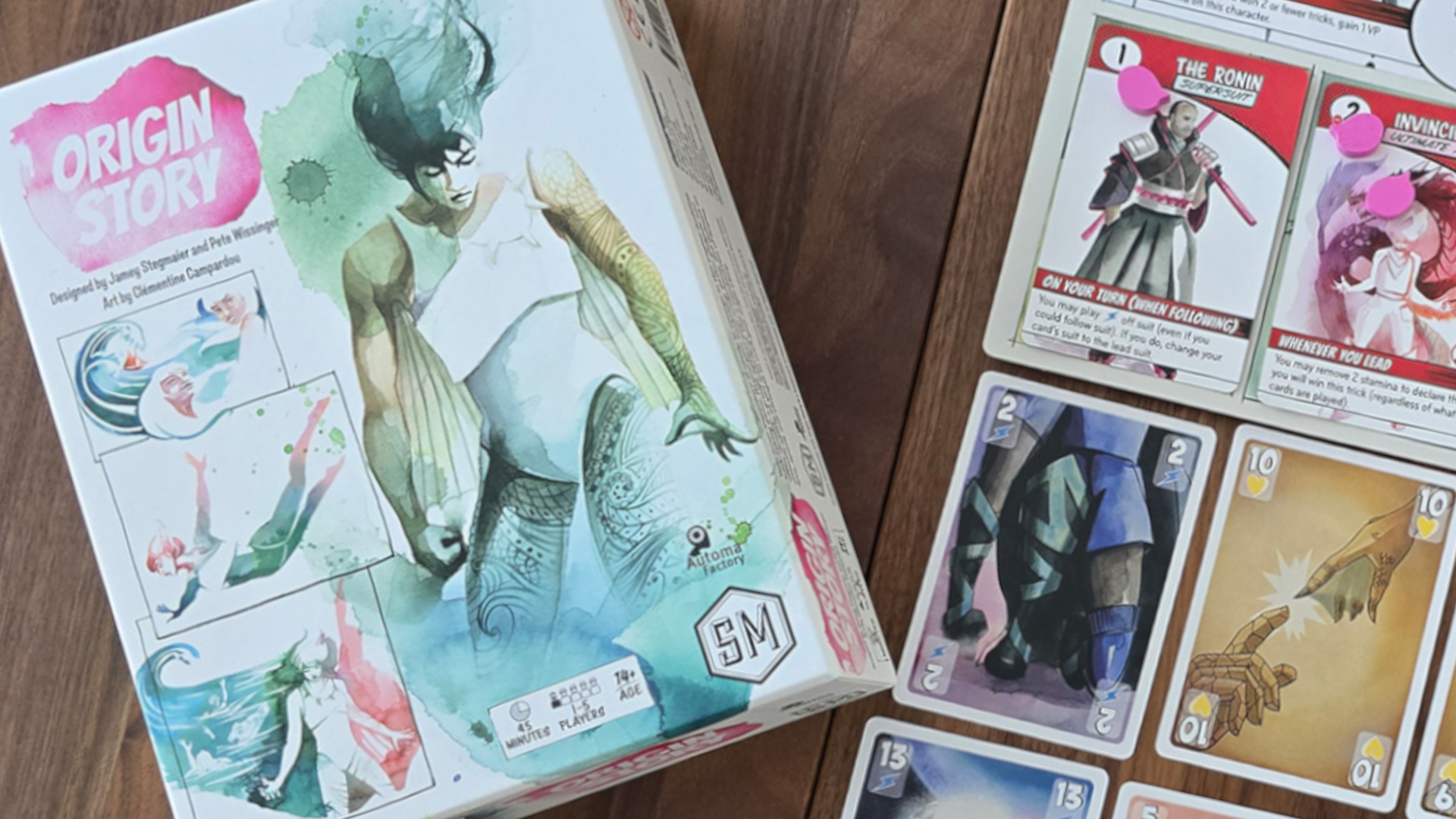Former BioWare exec says Anthem's storytelling failed because it was "treating everyone as if they were the same protagonist," but Borderland succeeds because "the storytelling spreads" across all players when they split up
Mark Darrah continues his chapters-long autopsy of Anthem

EA's failed live-service shooter Anthem is officially shutting down in January, and former BioWare executive producer Mark Darrah has some capital-T Thoughts on what exactly went wrong.
A big theme threading together Darrah's Part 1 and Part 2 episodes on his 'What Happened on Anthem' YouTube video series is BioWare's "misunderstanding about multiplayer games," and he expands on that idea in a new video with a focus on Anthem's storytelling missteps.
From Darrah's perspective, one reason Anthem failed is its insistence on making a multiplayer game where all players are the same protagonist, creating an "accidental 'our'" in which no single player feels complete ownership of various components of the game, specifically the story.
"Ultimately it comes back to the fact that ownership of the various parts of the game in a multiplayer context wasn't adequately considered," Darrah said, pointing to Gearbox's Borderlands series as an example of a game that addresses that issue by "considering this to a greater degree.
"If the party starts to break apart, the storytelling spreads amongst all of the other people."
Darrah also seemingly referenced Final Fantasy 14 (he called it "Final Fantasy 13" but must've misspoken as there's no multiplayer element in that game) and how "it's really trying to make the story mine" by "treating me as if I'm the protagonist" while "everyone else that I bring along with me is coming along for the ride.
"Now, they might be having that exact same experience from their perspective, so it's 'me' for everyone. But the advantage of that is you're able to tailor the storytelling to each person based upon what they're experiencing, whereas this accidental 'our' that Anthem ends up with means that the game is treating everyone as if they are the same protagonist. It is certainly possible to do 'our' for storytelling, it can be done, but it needs to be done with intentionality."
Weekly digests, tales from the communities you love, and more
Darrah argued that Anthem's "bad edge cases," apparently referring to instances of players not feeling any sense of possession of the game's narrative, become "standard cases" due to an economy that encourages "certain repeat behaviors."

"Consider, when I'm in a story, whose story is it? When I'm in a world, whose world is it? When I have a piece of gear, whose gear is it? When I have a character, whose character is it? Is it mine? Is it ours? Is it yours? Am I coming into your game? Is it the community's, or is it just a static thing?" said Darrah.
"Each of these possible answers can result in really interesting gameplay, but if you don't ask the question, you're going to end up with an accidental answer, and in the case of multiplayer experiences, accidental answers is exactly what you don't want to end up happening."
Darrah took over as Anthem's executive producer in 2017 and was with the studio when the game shipped in 2019, leaving the studio late the following year alongside general manager Casey Hudson. That's all to say, if anyone can provide an insightful perspective on Anthem's failure, it's this guy. This also lines up with the very common criticism that Anthem's storytelling simply wasn't compelling enough a foundation to carry a live-service game intended to run for years and years.

After earning an English degree from ASU, I worked as a corporate copy editor while freelancing for places like SFX Magazine, Screen Rant, Game Revolution, and MMORPG on the side. I got my big break here in 2019 with a freelance news gig, and I was hired on as GamesRadar's west coast Staff Writer in 2021. That means I'm responsible for managing the site's western regional executive branch, AKA my home office, and writing about whatever horror game I'm too afraid to finish.
You must confirm your public display name before commenting
Please logout and then login again, you will then be prompted to enter your display name.


